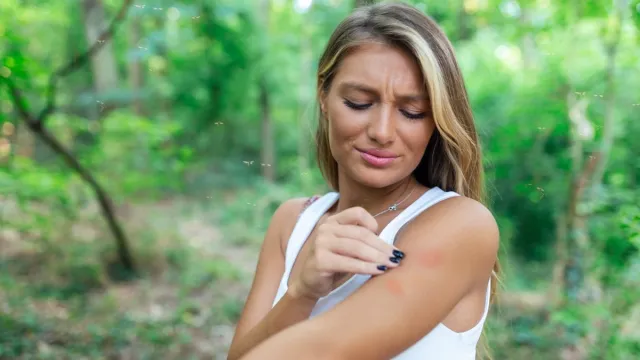
Summer brings outdoor pleasures we dream about all year—backyard hangouts, camping, and lots of time near water—and the outdoor-related misery we’d love to forget. Namely, mosquitoes, whose bites can be agonizingly itchy, unsightly, and in some cases even a serious health hazard. How bad a season is your region in for this year? No one is truly safe, but a new report by pest control company Orkin has listed the 50 worst U.S. cities for mosquitoes. Read on to find out which cities made the top 11, and the best things you can do to stay safe from mosquitoes this summer.
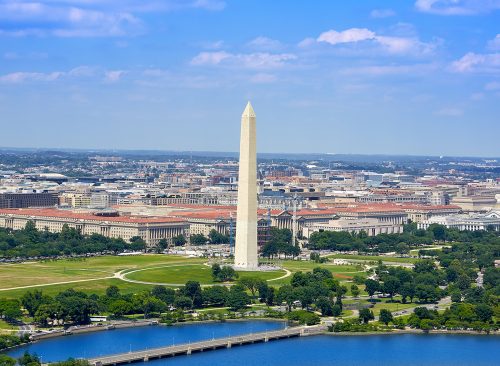
Orkin said it made its list according to the metro areas where it performed the most residential and commercial mosquito control services from April 1, 2022, to March 31, 2023. Numbers 11 through 6 include:
- Raleigh-Durham, North Carolina
- Charlotte, North Carolina
- Houston
- Detroit
- Philadelphia
- Washington, D.C.

And the top five most mosquito-plagued cities are:
- Dallas/Ft. Worth
- Atlanta
- New York
- Chicago
- Los Angeles
New York, Chicago, and Los Angeles retained their exact rankings for the second year in a row, the company said.
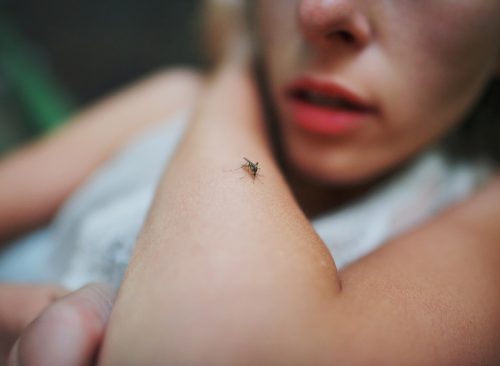
We can put a man on the moon, so why is modern society still plagued by mosquitoes? “They’re really resilient,” Dr. Mohammed El Damir, an entomologist in Duluth, Minnesota, told local station WDIO this week. “These species can stay in the egg as long as five years waiting for right condition. So these mosquitoes, if it is drought, they’re not going to die. They’re just waiting for the right opportunity.” Standing water is the ideal breeding ground for mosquitoes, and they don’t need much of it. Mosquitoes can hatch anywhere from gutters to a cup left out in the rain. They can lay viable eggs in just half an inch of water. “Female mosquitoes bite because they need blood to produce viable eggs that will hatch,” said Frank Meek, Orkin entomologist. “Mosquitoes are attracted to water sources that can be either clean and fresh or polluted, stagnant or running, in sunny or shaded locations, large or small, and in either cool or hot environments.”
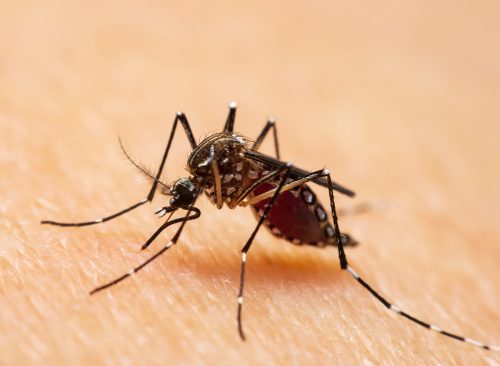
Mosquito bites aren’t just an annoyance for their relentless itch. Being bitten by a mosquito can also transmit diseases such as Lyme, Zika, malaria, yellow fever, Zika, dengue, and chikungunya, the Centers for Disease Control and Prevention says.
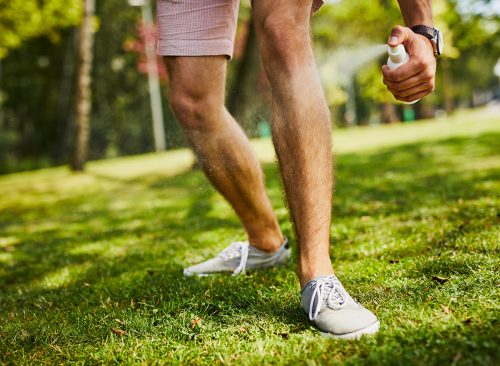
To avoid getting bitten by mosquitoes, experts advise the following:
- Protect yourself with a mosquito repellent, containing one of these CDC-recommended active ingredients: DEET, picaridin, IR3535, oil of lemon eucalyptus (OLE), para-menthane-diol (PMD), or 2-undecanone
- Wear loose, long-sleeved shirts and pants. You can treat your clothing and gear with 0.5% permethrin, the CDC says. (Just don’t put that solution on your skin).
- Eliminate standing water in and near your home
- Avoid being outside when the sun is rising or setting. “I learned from the hard way to not be outside during the dawn or during the dusk.” said El Damir. “Thirty minutes before the sun goes up and 30 minutes before the sun goes down, mosquitoes are the most active. And if you happen to be there, probably you’re going to end up with a lot of bites.”














